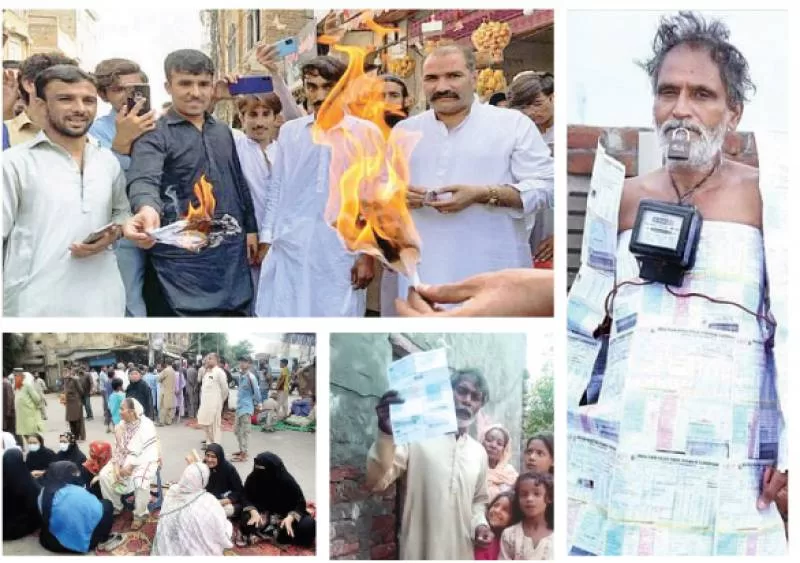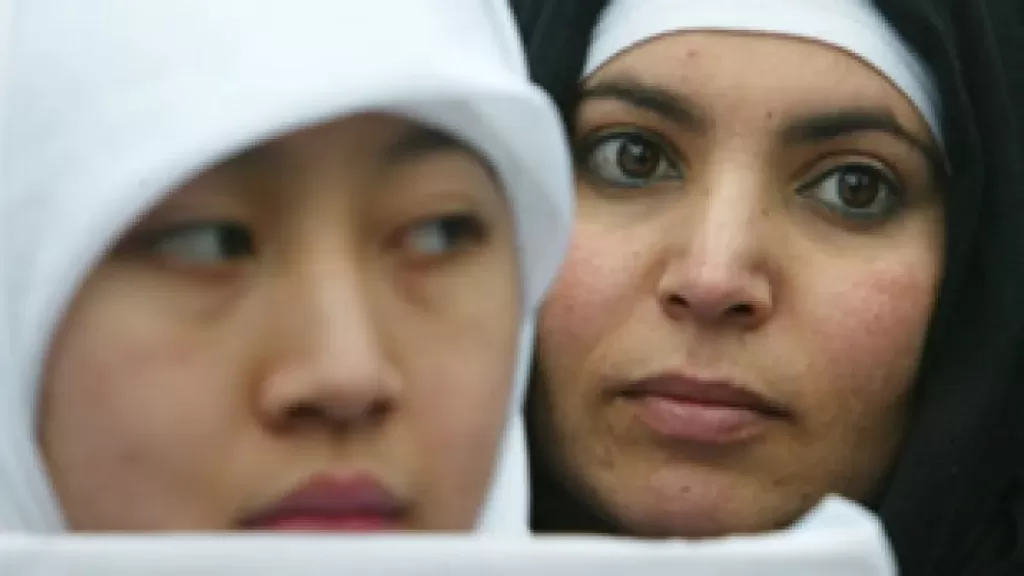Inflated electricity bills spark nationwide protests
ISLAMABAD/KARACHI/PESHAWAR – Caretaker Prime Minister Anwaarul Haq Kakar Saturday summoned an emergency meeting on Sunday (today) over the price of electricity and consumers’ bills. The prime minister also directed the ministry of energy and the power distributions companies to present detailed briefing over the issue, PM Office Media Wing said in a press release on Saturday. The meeting would mull over provision of maximum relief to the masses over electricity bills. Separately, on his X handle, the prime minister posted that he summoned an emergency meeting over these issues in the PM House and would hold consultations to provide maximum relief to power consumers. The inflated power bills triggered nationwide protests, including Lahore, Karachi, Rawalpindi, Multan, Gujranwala, and Peshawar. In Karachi, the Jamaat-e-Islami held demonstrations at multiple places against the skyrocketing increase in power bills and what it said overcharging on part of the K-Electric (KE). In Rawalpindi, protesters gathered at Committee Chowk and burned bills while demanding that the government abolish imposed taxes on electricity. Also in Peshawar, power consumers called the increase in electricity bills unbearable and demanded immediate relief from the government. In Gujranwala, Protesters surrounded the Gujranwala Electric Power Company office in protest against expensive electricity. Protests were also held in other cities, including Narowal, Attock, Sargodha, and Haripur, against high power bills. The protests in Multan were emotionally charged. They tied their electricity bills to donkeys as they marched towards the Gujranwala Electric Power Company (Gepco) while chanting slogans against the government. Traders and citizens also in different cities held protest demonstrations on Friday against the rising cost of electricity amid growing inflationary pressure, warning the government to be prepared to face the “consequences” if did not address the issue that was consistently adding to the cost of living in the country. The protests began after Pakistan’s National Electric Power Regulatory Authority (NEPRA) increased the tariffs by Rs4.96 per unit last month, a condition set by the International Monetary Fund (IMF) for approving a short-term $3 billion bailout package for the South Asian state. NEPRA periodically adjusts consumer-end tariffs after getting input from distribution companies which suggest different rates calculated on the basis of their revenue requirements. “We warn the government that if the decision to increase electricity prices is not withdrawn immediately, the consequences will be borne by the incompetent rulers,” Muhammad Kashif Chaudhry, President of Markazi Tanzeem-e-Tajran Pakistan, a central association of traders in the country, said in a statement. He added the business community had launched a string of protests against the electricity price hike and were planning to gradually spread the movement nationwide. “We had already warned the rulers of this country not to become a tool of the international financial institutions by implementing anti-people policies,” Chaudhry said. He maintained people residing in different cities, towns and villages had started pouring into the streets and were burning their electricity bills, adding it was their way of expressing “rebellion.” Meanwhile, speaking to the participants of the demonstration in Karachi, Atiq Mir, Chairman of All Karachi Tajir Ithehad (AKTI), highlighted that when traders and businessmen were compelled to protest on the streets, it signaled a “genuine economic crisis in the country.” Hafiz Naeem-ur-Rehman, the JI chief, said criticised the government for initially increasing petrol prices before raising the cost of electricity costs. He pointed out it had become challenging for the common citizen to meet basic requirements. In the last 30 days, the government twice raised the fuel prices under a fortnightly cost adjustment mechanism, leading to an all-time high with over 15 percent hike. Traders underscored the recent increase in fuel and power prices, coupled with spiraling inflation, had severely hampered their business activities. Inflation in country reached a historic peak of 38 percent in May before easing to 28.3 percent in July, though it continues to remain significantly elevated. Meanwhile, the former lawmakers of Muttahida Qaumi Movement-Pakistan (MQM-P) Saturday expressed concern over the hike in electricity bills,the prevalent problem of delayed bills and urged the government to withdraw the recent hike in units. In a statement issued here on Saturday the former MNAs Sabir Hussain Qaimkhani and Salahuddin said besides making electricity very expensive, up to 10 to 12 hours of load shedding was also being carried out, affecting domestic, commercial and industrial consumers. They deplored that instead of ensuring that the meter reading of exactly, the meter readers of Hyderabad Electric Supply Company (HESCO) take readings of extra days. They reiterated that the complaints about the burnt or defective transformers were not timely addressed and the consumers had to pay from their pockets to get the tranformers repaired even though HESCO’s stated policy was that the company was reposonsible for the repair and replacement. The legislators said the expensive electricity at the time when the country and its people were reeling from inflation only multiplied woes of the people.They requested the government to withdraw the recent hike in the price of units and to address the services related issues of the power distribution companies like HESCO. Source:https://www.nation.com.pk/27-Aug-2023/inflated-electricity-bills-spark-nationwide-protests
Inflated electricity bills spark nationwide protests Read More »
News

















